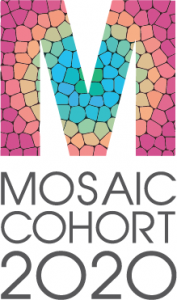LSF Podcast Cultural Humility and RST Links
Ep 8 Cultural Humility and MHLink:

MOSAIC Health Equity and Cultural and Linguistic Competency Professional Development
The Partnership for Child Health offers Mosaic: Health Equity (HE) and Cultural and Linguistic Competence (CLC) Professional Development Series -- a strategic, train-the-trainer program to bolster culturally responsive and inclusive organizations throughout our community. To find out more, click here.
Cultural and Linguistic Competency Training Modules Click here
Health Equity Resources
HEALTH EQUITY ORGANIZATIONAL ASSESSMENT TOOLS
- Implementation Checklist for the National CLAS Standards
The Implementation Checklist for the National Standards for Culturally and Linguistically Appropriate Services (CLAS) in Health and Health Care is a checklist that describes implementation strategies for each of the National CLAS Standards’ domains.
- Protocol for Culturally Responsive Organizations https://pdxscholar.library.pdx.edu/cgi/viewcontent.cgi?article=1008&context=care_pubs
This cultural and linguistic competence organizational assessment was developed by the Center to Advance Equity – Portland State University. The document is a comprehensive protocol to assess equity across organizational domains.
- Cultural Competency Assessment Scale (CCAS) - Agency Level
https://www.montefiore.org/documents/Cultural-Competency-Assessment-Scale.pdf
The Agency Level CCAS is an organizational self-assessment scale used to improve the delivery of behavioral health services in an outpatient setting.
- Cultural Competency Assessment Scale (CCAS) - Program Level
https://ctacny.org/sites/default/files/trainings-pdf/program_level_ccas_june_2012.pdf
The Program Level CCAS is an organizational self-assessment scale applicable to behavioral health programs serving multicultural populations. The Program Level CCAS may be used as a quality improvement tool to measure change over time.
- Cultural Competence Assessment Tool (CCAT)
https://www.racialequitytools.org/resourcefiles/culturalcompentencyassesstool.pdf
The CCAT guides health organizations through an examination of the administrative structures and practices based on the National Culturally and Linguistically Appropriate Services CLAS) Standards. The CCAT also includes a section for the development of an action plan.
- Racial Equity Tool Questionnaire
https://www.racialequitytools.org/resourcefiles/mason.pdf
Based on the Child and Adolescent Service System Program Cultural Competence Model, the CCASQ describes cultural competency across four dimensions: attitude, practice, policy and structure. The questionnnaire includes a demographic section and two formats; service provider and administration.
- System of Care Practice Review Protocol
http://logicmodel.fmhi.usf.edu/resources/PDF/SOCPR-Protocol.pdf
The SOCPR-R is a method and instrument used for assessing whether System of Care
(SOC) values and principles are operationalized at the level of practice, where children
and their families have direct contact with service providers.
- Language Access Assessment Tool
https://www.lep.gov/sites/lep/files/resources/2011_Language_Access_Assessment_and_Planning_Tool.pdf
The Language Assistance Self-Assessment and Planning Tool document is used to to assist organizations that receive Federal Financial Assistance in their strategic planning efforts to ensure that program goals and objectives address meaningful access for all of the people they serve or encounter, including those who are limited-English proficient. This document has two parts: 1) a language access assessment; and 2) framework for developing a Language Access Plan based on the requirements of Title VI of the Civil Rights Acts of 1964.
- Cultural Competency in Mental Health Peer Run and Self-Help Programs: A Tool to Assess and Enhance Services
This tool was created to help mental health, consumer operated programs and self-help groups assess their cultural competency.
- Cultural and Linguistic Competence Family Organizational Assessment (CLCFOA)
https://nccc.georgetown.edu/documents/NCCC-CLCFOAAssessment.pdf
The CLCFOA is intended to support family organizations to: (1) plan for and incorporate culturally and linguistically competent policies, structures, and practices in all aspects of their work; (2) enhance the quality of services and supports they deliver within culturally diverse and underserved communities; and (3) promote cultural and linguistic competence as an essential approach in the elimination of disparities and the promotion of equity.
- Cultural and Linguistic Competence Policy Assessment (CLCPA)
https://nccc.georgetown.edu/documents/CLCPA.pdf
The Cultural and Linguistic Competence Policy Assessment (CLCPA) was developed by the National Center for Cultural Competence (NCCC) at the request of the Bureau of Primary Health Care (BPHC), Health Resources and Services Administration (HRSA), U.S. Department of Health and Human Service (DHHS) to assist community health centers to advance and sustain cultural and linguistic competence.
- Race Matters: An Organizational Self-Assessment
http://www.aecf.org/m/resourcedoc/aecf-RACEMATTERSorgselfassessment-2006.pdf
This tool raises organizational awareness, starts focused conversations, contributes to the development of equity action plans, and tracks organizational change. Organizations that care about these issues can produce early results by using this tool.
Addressing Racial Equity within Behavioral Health Organizations
